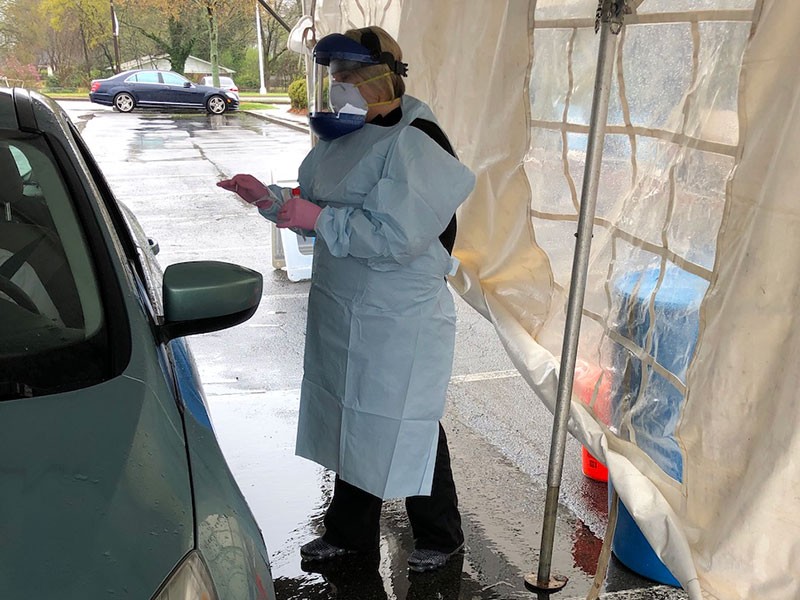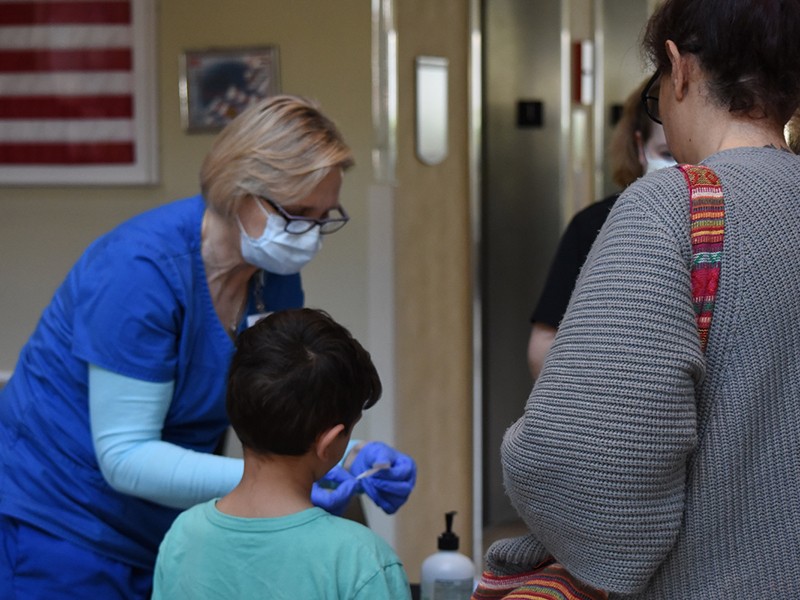For weeks now, we’ve been hearing that if you develop symptoms of COVID-19, you should call your doctor or nearest urgent care facility to discuss how you should be treated.
But what about people who have illnesses unrelated to coronavirus? Turns out the advice is much the same. Call ahead.
As doctors and other health care workers strive to protect themselves and their patients from the virus, they are turning to methods of diagnosing patients other than in-person visits. Some are utilizing e-visits, an online portal that allows patients to describe symptoms before a doctor contacts them. Others are having appointment by telephone.
But a surprising number of physicians are turning to video conferencing to see certain types of patients.
“It’s been a game changer,” said Dr. Monica Newton, a family practice physician with the Northeast Georgia Physicians Group, who was at first skeptical of the technology.
“You can get a fair bit of information through video medicine,” she said. “We are all trained observers, so we’re very attuned to looking at a person’s body language, how they are talking, how well they are breathing.”
Likewise, physicians at the Longstreet Clinic are increasing the use of video technology to treat patients without having them come in their offices.
“This is something a lot of us in the industry have been interested in doing,” Mimi Collins, CEO of Longstreet, said. “A number of our physicians have been piloting in the last week. We’re really excited about it.”
The Centers for Medicare and Medicaid Services approved a waiver on March 17 that expands the way health care providers can use video medicine to treat their patients. Prior to the waiver, the federal government put significant restriction on how and where video could be used to treat patients.
The expansion of video medicine has allowed doctors to keep patients at home and away from areas where the virus patients might be present. But the process is also good for physicians.
“We can do a home triage with one of our nurses and it guides us to whether the person needs to come in,” Danny Webb, a family nurse practitioner at Longstreet, said. “You can do a lot of assessment through the video. You’re able to see the patient and make some determinations before they just come to the office.”
The outbreak of COVID-19 has put a strain on the nation’s health care network. At NGPC offices and at all Longstreet locations, anyone who enters a building is been screened. But local providers know there will still be instances when a patient will need to come to the office.
“We are screening every visitor, every patient, every employee,” Collins said. “If they have a temperature, we are asking them to go back to their car and we will screen them by phone. Everyone who walks through the door is asymptomatic and the population within the building is as healthy as I can be.”
Collins said Longstreet is utilizing an office that is not connected to the main building in Gainesville as a satellite lab station, which it being used for non-COVID related illnesses, like strep throat.
“We may do a video visit and decide we need to have that patient come in,” she said. “We’ll have them come into this building without having to sit in a waiting room.
For many people, a trip to the doctor is for routine treatment, such an annual wellness visits, physical therapy appointments or follow-ups to previous treatments. Newton said her practice and other in NGPG will try to keep those appointments for patients.
“We know our patients very well, and we know if it’s something that can be postponed or done though a video visit,” she said. “But I think we’ll move quickly into having our wellness patients in the morning, and the acute or follow-up patients in the afternoon. We’ll use the evening to do a deep clean on the office and then start the process over in the morning.”
Longstreet also stresses the importance of wellness visits, and Collins hopes to continue to provide them during this crisis.
“We, of course, believe that people need to get their physicals,” she said. “It’s an important healthcare interaction and it’s important for long-term health.”
Collins said wellness visits are particularly important in pediatrics, where newborns need to be seen by their doctors. But she acknowledged those visits could become more difficult to schedule if restrictions around medical facilities tighten during the virus crisis.
So will video medicine stick around after the coronavirus outbreak subsides? Newton believes it will. She and her husband, also a physician, have talked a good bit about the process.
“We’ve both been surprised by how much we liked it,” she said. “I think you can have a successful visit that way.”










